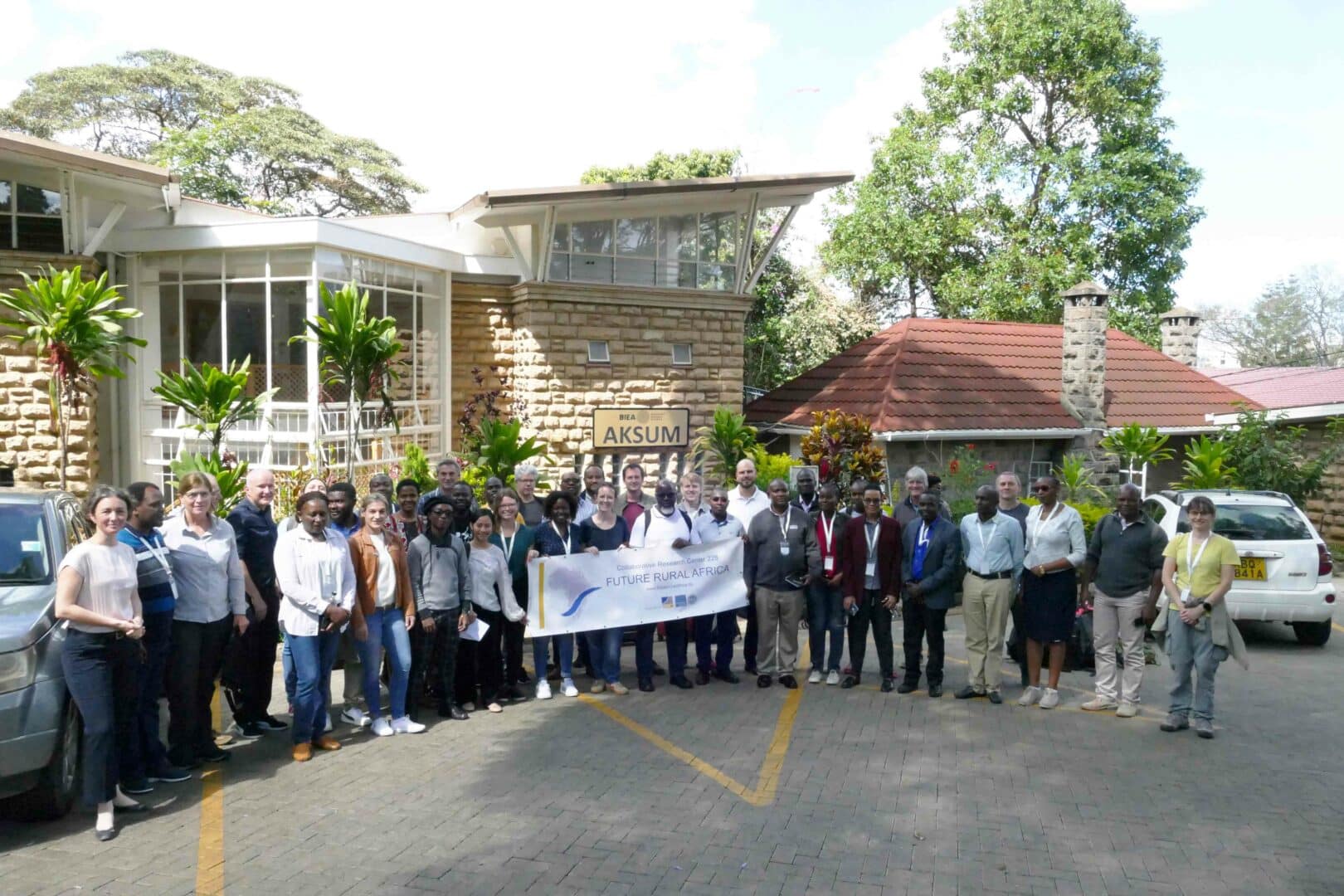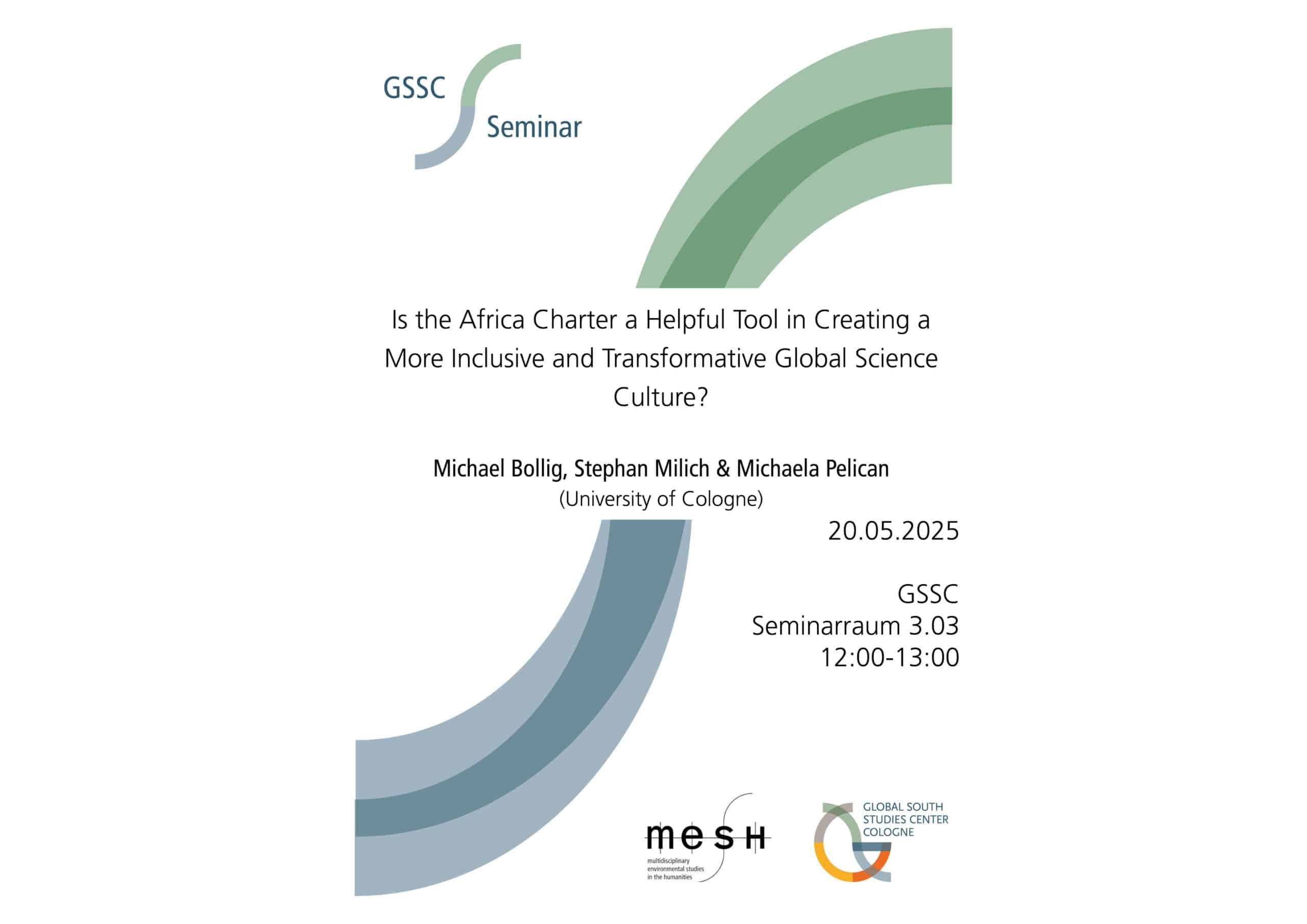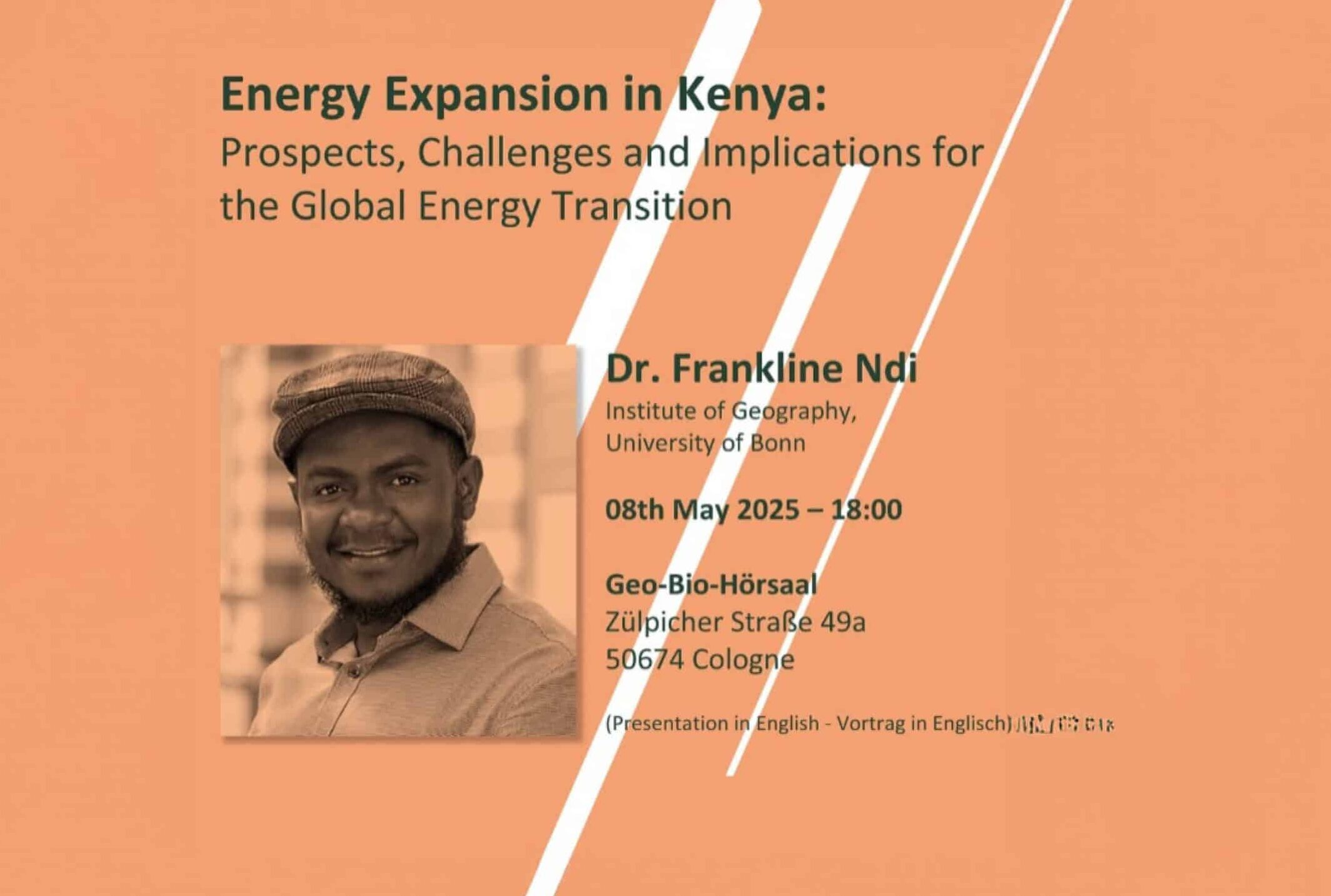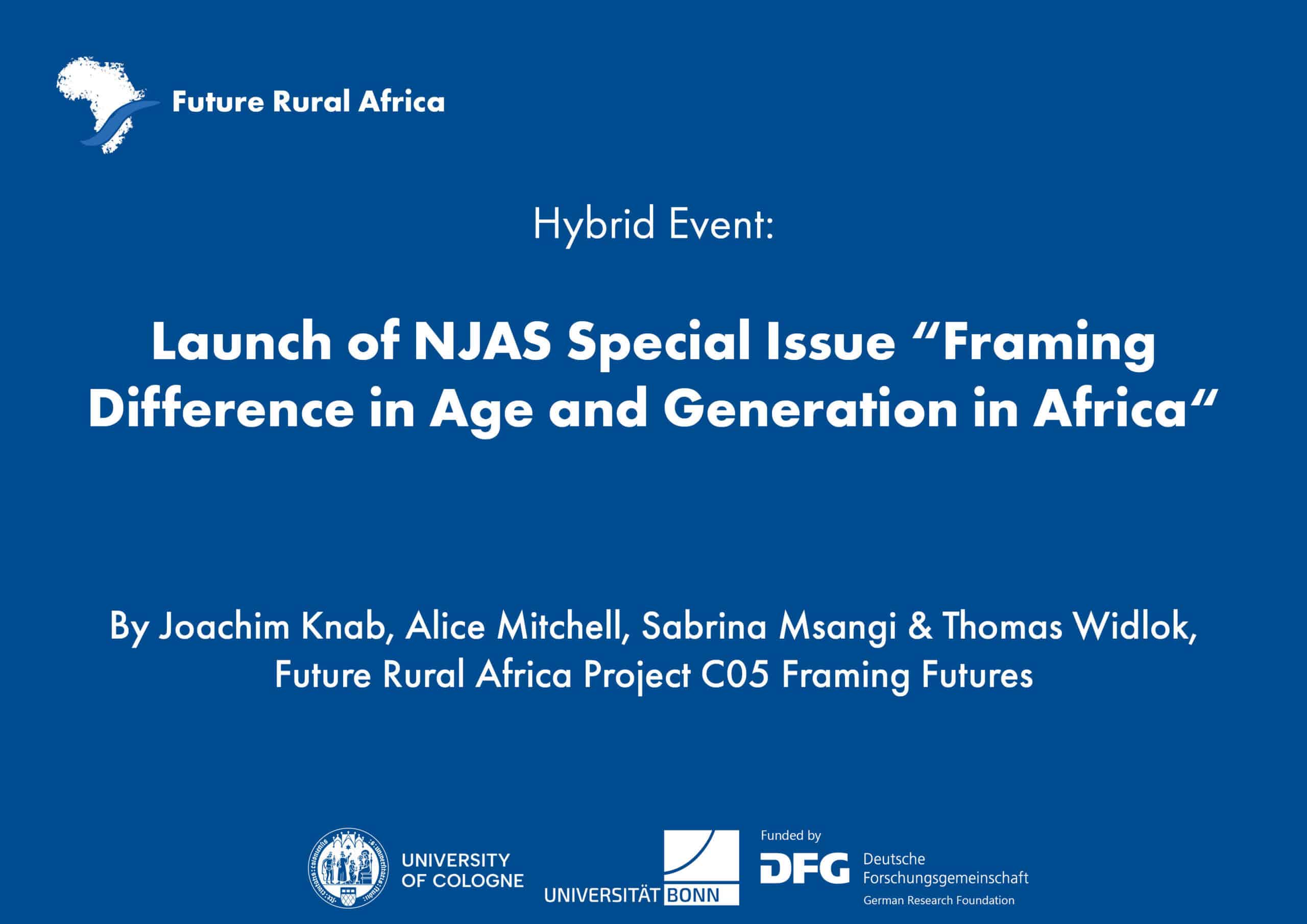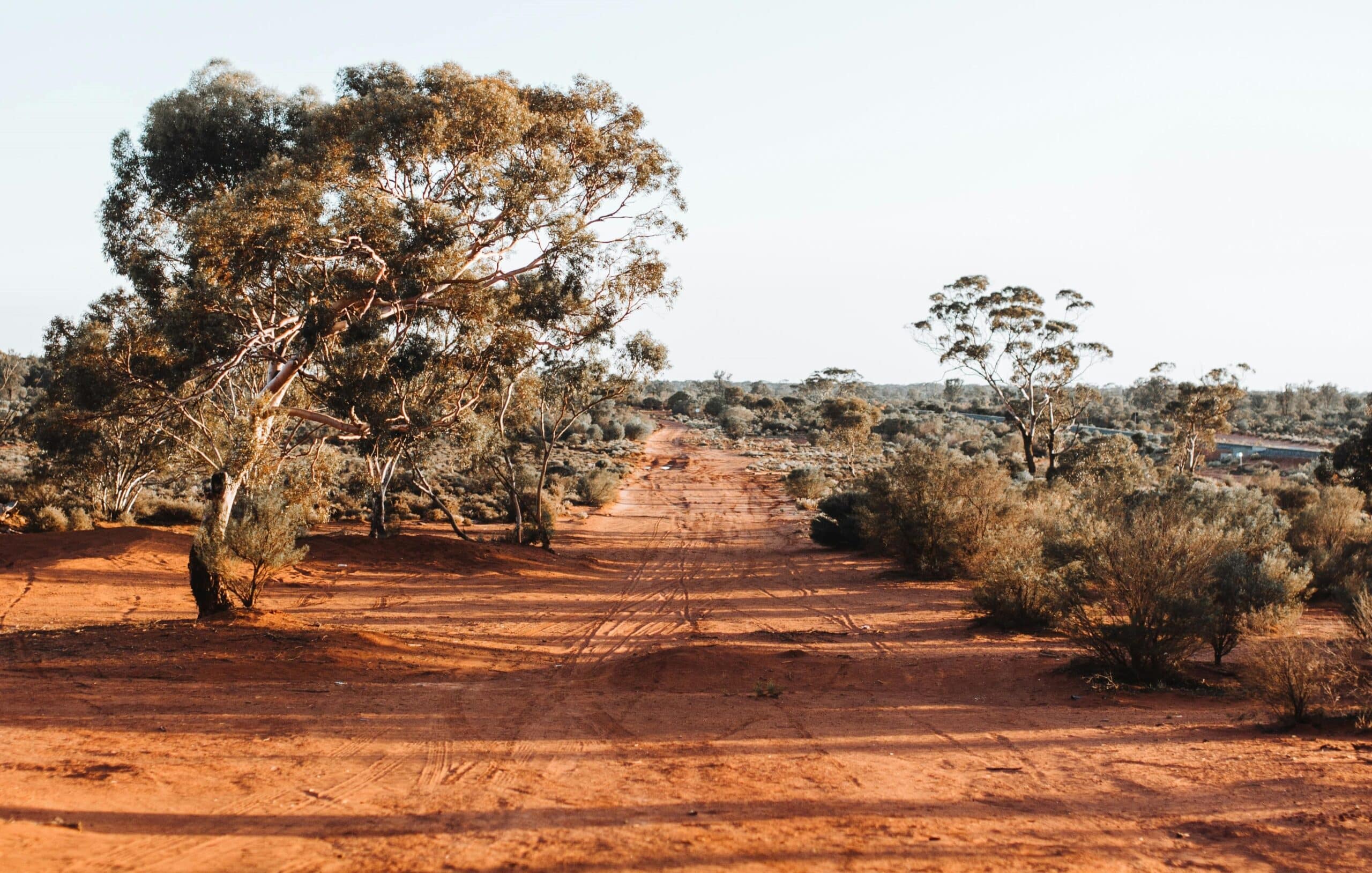The Collaborative Research Center-TRR 228 Future Rural Africa conducted the Kick-Off event of the second funding phase and 2022 summer school in Nairobi and Naivasha from 24–28 November 2022.
Kick-Off Second Funding Phase
After a kick-off event in Windhoek earlier this year to commence the continuation of the collaborative research centre for a second of three possible phases by the German Research Foundation (DFG), the CRC-TRR also officially launched the second funding phase in the East African research region at the British Institute of Eastern Africa in Nairobi on 24 November 2023.
The event was visited by many of our research partners from Kenya and beyond and featured a welcome address by CRC-TRR 228 Co-Speaker Prof. Britta Klagge, researcher in CRC Project C02 “Energy Futures” as well as a presentation by Dennis Otieno Ochuodho, researcher in CRC Project A05 “Future Roads”. The kick-off event was a great opportunity for our researchers to get together to discuss their research, discover synergies, and discuss future scientific undertakings in person.
Driver’s Training
Before the summer school 2022 officially began, our researchers received the opportunity to take part in a driver’s training session. The session provided the participants with detailed theoretical knowledge on how to operate a 4WD vehicle before culminating in a practical driving exercise. Participation in the session is required for researchers who intend to use the project’s vehicles during their field work.
Summer School
Day 1
The CRC-TRR Future Rural Africa’s summer schools brings together leading experts in various fields to teach and mentor students and early career researchers. It is an excellent way to learn about the latest research, methodologies and approaches. Another positive effect is the creation of a collaborative environment where participants can share ideas, discuss research challenges, and form new connections with peers and mentors. This helps to foster a sense of community within our research project and leads to new collaborations and opportunities for future research.
The 2022 Kenya summer school kicked off with a session on historical methods with a focus on archival work at the British Institute of East Africa in Nairobi. Here, Prof. Ulrike Lindner, a historian from the University of Cologne and Principal Investigator in CRC Project C07 “Creating Health Futures” demonstrated to the participants how historians work with archival material. The session emphasized the problems emanating from working with sources from colonial archives, that can carry an extreme bias towards the colonizers. After a theoretical part, the session commenced at the National Archives of Kenya in Nairobi, where participants were given a tour of the archive and had the opportunity to familiarize themselves with the processes of archiving and restoring various documents and materials.
After transfer from Nairobi to Panorama Park Hotel in Naivasha, the Future Rural Africa Summer School continued with a session on Scientometrics and Discourse Analysis in the context of studying power-knoweldge-nexi in Future making. This session was carried out by Prof. Anna-Katharina Hornidge, Principal Investigator in CRC Project B05 “Science Futures” and Director of the German Institute of Development and Sustainability (IDOS).
Day 2
Day two started with Prof. Khamaldin Mutabazi from our partner institution Sokoine University in Tanzania holding a session on integrating qualitative and quantitative approaches when studying future-making in rural Africa. Especially in the context of inter-disciplinary research approaches, which are often utilized in our project, it is important that researchers “exit their scholarly silos and embrace […] interdisciplinary culture” (Mutabazi, 2022). Prof. Mutabazi underlined this approach by sharing experiences from a case study on the commercialisation of smallholder farmers in a changing climate in rural Tanzania, carried out within the Agricultural Policy Research in Africa project.
The summer school continued with Prof. Peter Dannenberg, a geographer from the University of Cologne and Principal Investigator of CRC Project C01 “Future in Chains” sharing his insights on recent developments around the Southern Agricultural Growth Corridor of Tanzania (SAGCOT), in light of the coupling processes between global fertilizer manufacturers and the Tanzanian agricultural market. He explained how a gradual disenchantment with SAGCOT’s vision and its subsequent disintegration could jeopardise these coupling processes today. Most of the CRC Future Rural Africa’s research areas are clustered around newly established development corridors, which can be regarded as “hot spots” of current land-use change in Africa.
Avenues of Communication
Adequately transferring the results of scientific research to other scientists as well as the general public is a compulsory skill for every scientist. During the Future Rural Africa summer school in Kenya, Prof. Mathias Becker, Prof. Thomas Heckelei and Dr. Hellen Kamiri from the University of Bonn and University of Bonn and Karatina University respectively, collaborated on a session on presentation skills. Here, participants learned about do’s and don’ts when it comes to presenting their research findings. During the session Prof. Becker, Prof. Heckelei and Dr. Kamiri drew on their own experience and covered a wide array of topics including practical examples, formal and structural elements and even posture and body language, and how they can positively impact the presentation of research data.
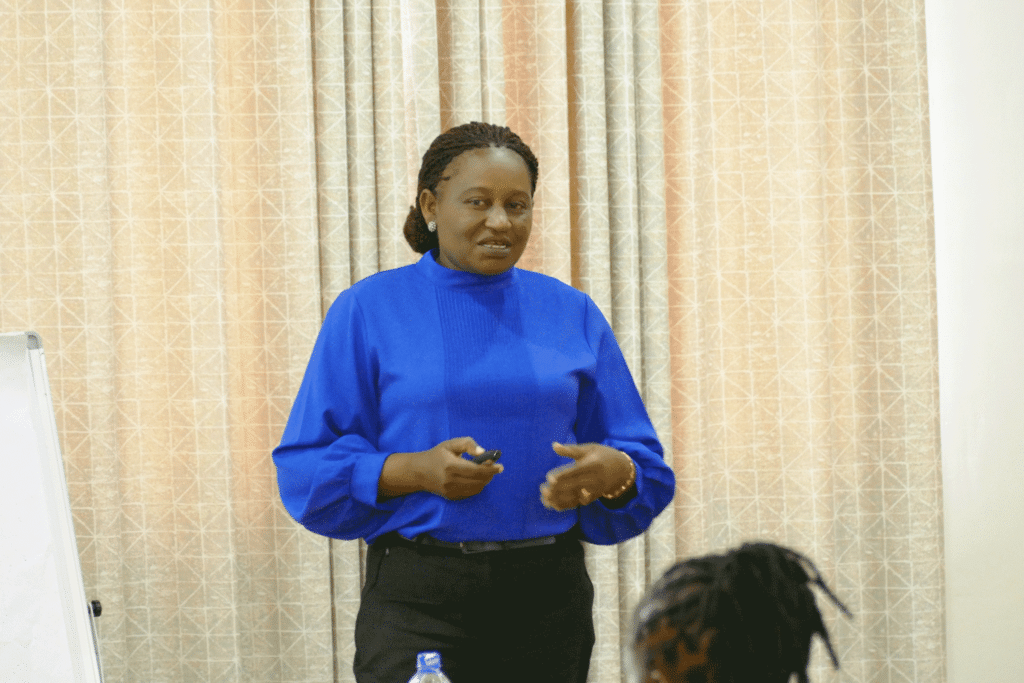
Ethical considerations during field work
While methodologically researchers can prepare well for the fieldwork ahead, the undisclosed challenges of everyday life in the context of anthropological field work can cause some issues. The session on “ethical considerations in (anthropological) field work” conducted in collaboration by Dr. Hauke Vehrs (A04) and Dr. Clemens Greiner (C02) from the University of Cologne, as well as Dr. Peter Wangai, team member of Project A04 “Future Conservation” from Kenyatta University and Dr. Richard Kiaka from JOOUST aimed at providing some points of consideration and foster exchange between researchers. The session focused on questions pertaining to dealing with government officials, positionalities, how to deal with informants and research assistant, as well as conducting research in areas struck by crises. For instance, some researchers shared their concerns about conducting research in parts of Northern Kenya, an area that has recently been severely affected by drought where some families are struggling to make ends meet as a result. While there is not always a clear answer, the world-café style session, gave our early career researchers the opportunity to exchange ideas, raise concerns and seek advice from some of the more experienced members of the collaborative research centre when it comes to approaching these dynamics in an ethical manner.
Day 3
Quantitative Approaches: R-Statistics
The collaborative research centre Future Rural Africa is a vast, interdisciplinary research consortium bringing together researcher from a variety of disciplines. As such, research within the CRC relies on qualitative and quantitative approaches. Prof. Lisa Biber-Freudenberger and Prof. Christina Bogner, who are working in CRC Project A05 “Future Roads”, that looks at assessing the impacts of road development on rural communities, biodiversity, ecosystem services and the trade-offs between them, lead a session introducing the participating PhD and master students to the quantitative data software RStudio. In the session, participants got a hands on experience on how to use RStudio to import, wrangle, analyse and visualize date in the statistical programming language R. The session gave an overview on the multitudes of ways in which RStudio can be used in statistical data collection and analysis.
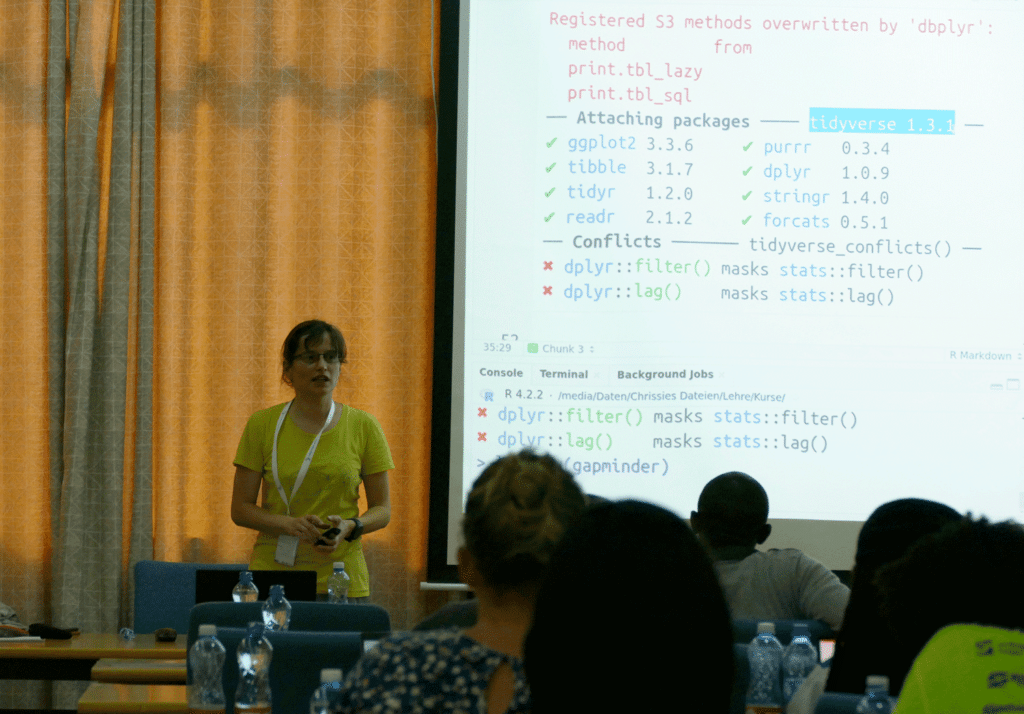
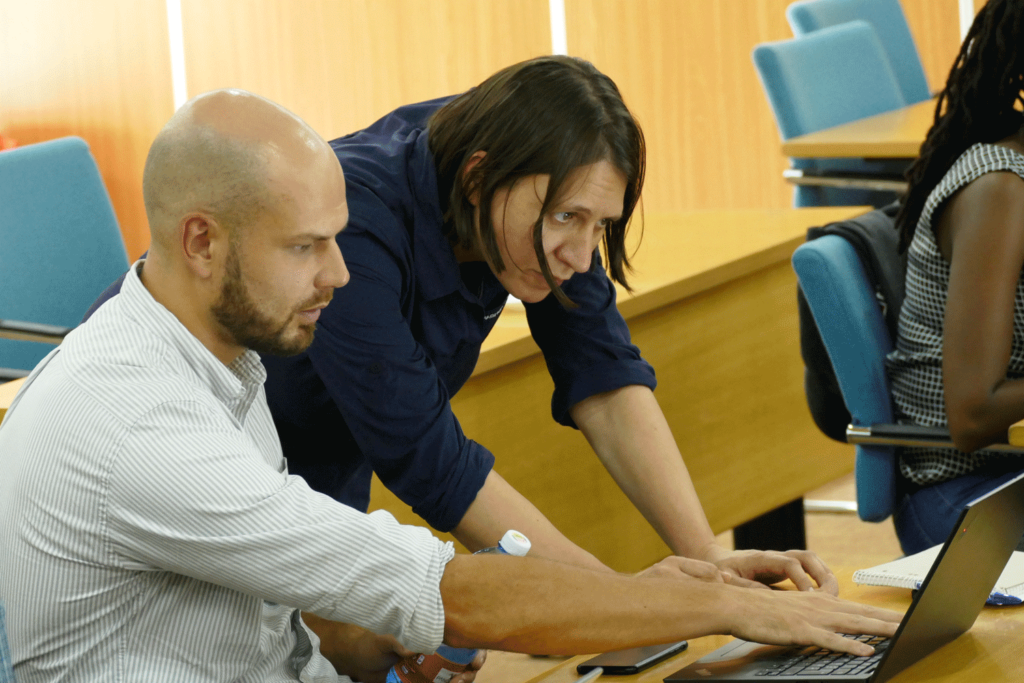
Excursions
During the Kenya summer school 2022, the coordination office of the CRC organised two excursions to sites relevant to our research. Firstly, there was a visit and tour of a flower farm along Lake Naivasha. Here, the participants were guided through the greenhouses and were given insights into the day to day operation in detail. Secondly, a boat trip on Lake Naivasha gave the opportunity to get a better feel for our research region and experience the lush ecosystem of the lake, as well as some of the opportunities and challenges that arise from human-environment interactions in the area.
Synergies
Apart from gaining insights into methodological approaches to academic research, the Future Rural Africa Summer School in Kenya was great for team building, especially considering how many of our African partners were in attendance. After years of virtual events during the pandemic, the face to face contact was very refreshing and our researchers used the time to solidify their academic relationships, exchange ideas and lay the foundation for further collaboration in the future. By bringing together students, researchers, and experts from different backgrounds and disciplines, summer schools helped to build a diverse and vibrant research community that is well-equipped to address the complex challenges that the collaborative research centre is facing.

